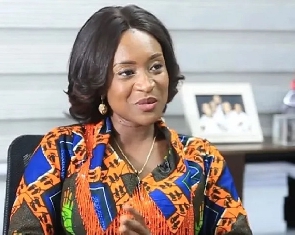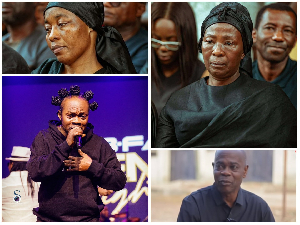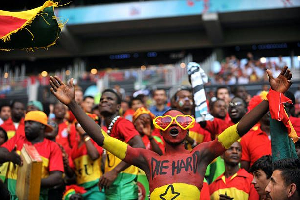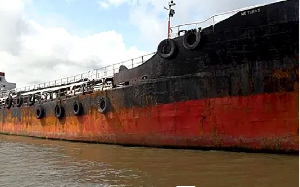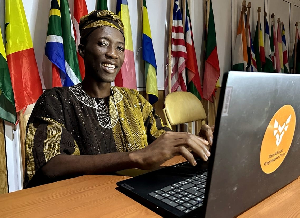Deputy Finance Minister, Abena Osei-Asare, has urged the media to take deliberate steps to validate financial institutions before advertising their products.
She explained that financial products and services advertisements on radio and television influence people’s purchasing decisions.
Madam Osei-Asare made this appeal during the official launch of the National Financial Education Campaign Program in Accra.
“The Ministry of Finance as part of the design of the financial education campaign conducted a preliminary assessment of Ghana’s financial literacy education landscape in 2021. The assessment which aimed to identify financial literacy gaps among citizens revealed that the average financial literacy score in the country is 12 out of a total score of 21," She said.
“This indicates that many Ghanaians lack the basic understanding of key financial issues such as the impact of inflation on the value of their money, computation of interest on loans and investments, and awareness and use of financial products and services, among others. These make it difficult for them to make an informed financial decision,” She stated.
According to her, it was also revealed that between 19 per cent and 32 per cent (an average of about 28 per cent) of Ghanaians follow trends in the financial sector. This implies that about 72 per cent (on average) of the population do not follow trends in the financial sector and as such, have no idea of developments in the sector.
“This shows the lack of interest by people in the management of their finances. They rather would prefer to shift their financial responsibilities to others,” she added.
On his part, the Chief Executive Officer at Asamoah & Williams Consulting, Mr Mawuko Williams noted that financial literacy was a key component to building an efficient and well-functioning financial sector.
“It does ensure that consumers are aware of their rights and responsibilities regarding the varying financial products on the market and can access them to improve their financial well-being and to alleviate poverty,” he added.
He acknowledged that his firm, Asamoah and Williams Consulting and Trans Media Network, which served as an independent consultant, was hired to assist in the design and implementation of the campaign to support the work of the committee.
“As part of the design process, the consultant undertook a detailed assessment of the financial education landscape across the 16 regions of Ghana to collect data that will inform the identification of the target audience, their level of financial literacy and knowledge gap as well as their preferred delivery platform. The findings from the survey informed the development of a five-year national financial literacy strategy (2021-2025) to serve as a blueprint for bolstering the financial capacity of Ghanaians,” he stated.
He asserted that though comprehensive, the designed financial education campaign does not address all the gaps identified from the survey and the defined priority areas in the national financial literacy strategy.
“We will therefore call on other stakeholders within the financial education space to consider the other defined priority pillars in the national strategy in their subsequent campaigns,” he noted.
Business News of Sunday, 9 April 2023
Source: dailymailgh.com

